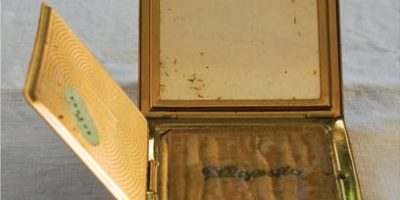Left Behind
I was about to have my hair trimmed. A new young woman replaced my usual hairdresser. It would be the first time I’d had a black hairdresser.
“You needn’t worry,” the young woman said. “At hairdressing school there was no black hair to learn on. Only hair like yours.”
Only hair like yours. I left the salon with that phrase turning over in my head. The hairdresser had seen me as white, with hair just like everyone else’s. It wasn’t so when I was a child.
I’d felt different from the other children in the small town where I lived. I didn’t have a name for it. I couldn’t say — it’s because I’m _________, that’s why I’m different. I didn’t understand what it was about me.
“Look at her hair. Fiddlehead frizz,” they called out. “She never brushes her hair. Don’t you have a comb?” the children taunted me. Some called it “nigger hair.”
It wasn’t “nigger hair.” My best friend Dolores had “black hair” and hers was not the same as mine. “Nappy head,” they called Dolores.
I scorned those children. My hair was the same as my father’s hair. Dark brown and really curly, and I wore it short. After my father showered he’d put on a net to restrain his curls. I let my curls curl. I didn’t want to be like the others anyway. They were rude to the teachers. They had fist fights. Even the girls.
Before we moved to our small town, we’d lived in Chicago. It was when my father lost his job that everything started to go wrong. Every day my father would go out looking for work.
When he came home I could tell he hadn’t found a job. There was a muscle in his cheek that didn’t stop twitching.
After a while we fell behind in the rent. Now my mother stayed in bed. It wasn’t long before the apartment was taken away. We had no relatives to help us. “Left behind” is what happened to our relatives when my mother and father “got out.” And then my mother “lost her nerves.” That’s what the doctors called it. “Best to keep her in the hospital,” they said. “There’s nothing more we can do to make her well.”
My father decided there was too much competition in a big city like Chicago so we should move to a small town. Then we had to leave my mother behind.
I didn’t like to think about my mother. It made me feel too sad. Whenever I did the tears would be running down my cheeks. My father and I never talked about my mother. Not that we’d said we wouldn’t, we just didn’t.
My father began to earn a living as a salesman. He sold cleaninggoods door to door, first in our town and then in other small towns nearby. New products were always being invented. By the time he got back to our town he would start all over again with an improved miracle cleaning fluid and a fancier vacuuming brush.
I was able to look after myself while he was away. From the time I started school in Chicago I had been the one to do the shopping and keep the apartment tidy. The house we lived in now was no bigger than the Chicago apartment and it was easier to keep clean because it wasn’t next to trains blowing soot.
One day Miss Bloch arrived at the school. She was a new teacher. I loved her from the very first lesson. Miss Bloch brought in her own books to read to the class. I had never heard such interesting stories — stories of brave children who overcame great odds to save themselves and others from danger, stories of imaginary places where human rules did not apply.
Miss Bloch was pretty. I liked the dresses she wore. I liked the way she sat on the table at the front of the classroom swinging her legs. Not like a teacher at all. Miss Bloch had the same hair as me — dark brown and really curly, and she wore it short.
At the end of the day I sometimes stayed back to help Miss Bloch pack up. Then we could talk about the stories and poems Miss Bloch had read to the class and about what I had written. Occasionally we talked of other things — how I managed at home, even when my father was traveling, what my life had been like in the big city. Months later, when I was absolutely sure that Miss Bloch liked me, I said, “We have the same sort of hair, don’t we, Miss Bloch?”
“Yes, we do. It’s Jewish hair.”
“Is it?” I said. “What’s Jewish?”
Eva White, born in Vienna, divides her time between Melbourne and New York City. Her stories have been published in newspapers and magazines in Australia and the U.S.


